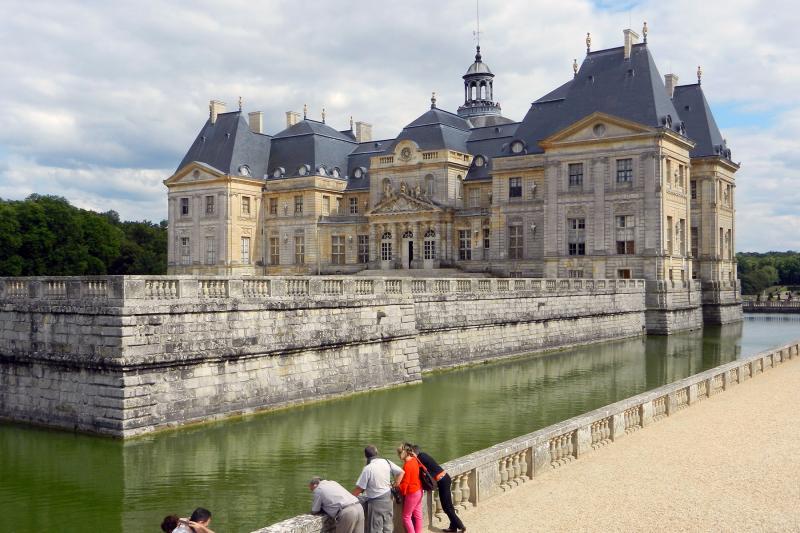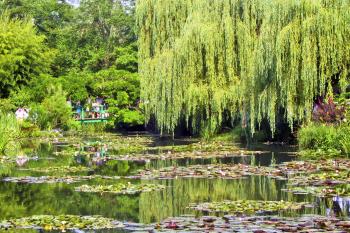Easy and rewarding day trips from Paris
Appears in the Online Edition, July 2020.
Although we've had to postpone trips to Europe because of the pandemic, I believe a weekly dose of travel dreaming can be good medicine. Here are some of my favorite day trips from Paris—a reminder of what's waiting for you at the other end of this crisis.
Paris can be intense, so for a break from its urban hustle and bustle I like to dip into the countryside for a day. There, a variety of appealing sights invite exploration, from châteaux and artistic gardens to cathedrals and Champagne—all within an hour of the city via public transportation.
The region around Paris is studded with several sumptuous palaces, mostly built as lavish hunting lodges. Of these, Versailles is the most famous—and a must for anyone who hasn’t seen it. But, for fewer crowds and a more intimate experience, Vaux-le-Vicomte is my château of choice.
Located in a huge forest southeast of Paris, Vaux-le-Vicomte was the home of Nicolas Fouquet, France's finance minister during the reign of King Louis XIV. After attending Fouquet's château-warming party in 1661, a very young Louis XIV was impressed...and envious. So, Louis had Fouquet thrown into prison, and hired his architect, artist, and landscape designer to build Versailles.
Vaux-le-Vicomte is flat-out ravishing, offering visitors a harmony of architecture, interior decor, and garden design that’s unrivaled. One of the highlights is climbing through the attic—under centuries-old exposed timbers—and then popping out on the rooftop to a view of the spectacular sculpted French garden. Fouquet's garden was cutting edge for its time and later would be copied in palaces all over Europe.
In stark contrast to the ordered gardens of Vaux-le-Vicomte, Claude Monet’s gardens at Giverny are like his paintings—a bit untamed and slapdash, but part of a carefully composed design. Monet spent his last (and most creative) years cultivating his garden and his art at Giverny, where he created his own pastoral paradise. But be warned: It’s a busy place, so buy tickets in advance, and come early or late.
Monet fans delight in following the meandering path through the water garden, to the Japanese bridge, under weeping willows, and over the pond filled with water lilies. The artist landscaped like he painted, building an Impressionist pattern of blocks of color. After he planted the gardens, he painted them, from every angle, at every time of day, in all kinds of weather. Strolling along the edge of the lily pond, you can see that Monet's true subject was not the garden itself--it was the play of light.
Another fine day trip is the lively, midsize town of Chartres. While the thriving, pedestrian-friendly old center is worth exploration, the main reason to come to Chartres is to see Europe’s best-preserved medieval cathedral.
Chartres’ soaring Gothic cathedral contains the world’s largest surviving collection of medieval stained glass, with more than 150 early 13th-century windows. Back then, stained glass (and statues) were used to help teach Bible stories to the medieval masses. While most churchgoers at that time were illiterate, they were fluent in understanding the rich symbolism in the windows.
At Chartres, the entire Christian story can be read visually—from Creation to Christ’s birth (on the north side of the church), from Christ and his followers to the present (at the south entrance), and then to the end of time, when Christ returns as judge (at the west entrance). The church is sometimes referred to as the "Book of Chartres”—just imagine its sculpture and windows as the “text,” and its architecture as the “binding.”
Another great Gothic cathedral is in the bustling, modern city of Reims—just 45 minutes from Paris by high-speed train. The site of the coronation of 26 French kings, Reims Cathedral is remarkable for its architectural harmony, ornate facade, and luminous stained-glass windows, including a set by Modernist master Marc Chagall. It’s especially atmospheric on summer evenings, when a free sound-and-light show illuminates the facade, helping sightseers visualize the cathedral’s appearance back in the 13th and 14th centuries, when Gothic cathedrals were boldly painted.
Reims also offers a more earthly delight: Champagne. Though many wine-growing regions in France produce sparkling wines, only the bubbly from this region can be called Champagne. Visitors can tour several of the city’s world-famous Champagne cellars (called “caves”), including Mumm, Taittinger, and the popular Veuve Clicquot. Visits usually consist of cellar tours followed by tastings, and most must be reserved in advance.
I’ll never get tired of Paris, but sometimes it feels good to get away for a day. When I do, I’m always reminded of how much fun it is to enjoy the sights, serenity, and modern French culture within easy reach of the City of Light.
(Rick Steves (www.ricksteves.com) writes European guidebooks, hosts travel shows on public TV and radio, and organizes European tours. This article was adapted from his new book, For the Love of Europe. You can email Rick at rick@ricksteves.com and follow his blog on Facebook.)


